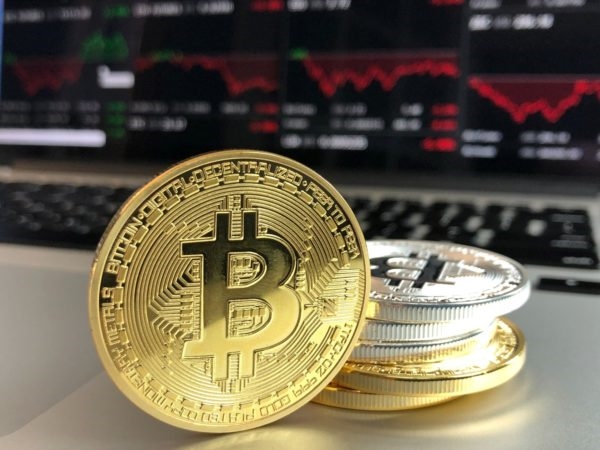How Bitcoin Could Make Credit Cards Obsolete
— October 31, 2018
Bitcoin is poised to take the financial world by storm. For the best part of 10 years it has existed under or on the fringes of the financial world’s radar. In the last 18 months, that all changed. Just about every news publication on the planet chimed in with their two cents on bitcoin’s future. Some optimistic and others overcompensating for their fear of the looming shakeup of global economics. Headlines would range from the bombastic – “Bitcoin price heading to [insert five or six digit figure here]” – to talk of tulips with the message that bitcoin is worthless. Meanwhile, established financial institutions offer equally varied critiques the world’s first truly global form of sound money.
Bitcoin’s Value
Many of the many bitcoin naysayers don’t understand the implications of a block-based, permission-less, censorship resistant, decentralised currency. It’s hardly unreasonable that they don’t either. Bitcoin represents a huge shift from the system we’ve grown accustomed to today. Where once were trusted middlemen now is simply code.
Bitcoin’s value to humanity is based on a few factors. The first is the code itself. Being entirely open-source means that anyone can participate in the network, whether that be running a node, mining hardware, or just auditing the validity of the programming for themselves. The code cannot act maliciously, nor can it exclude those wishing to participate in the network.
The current system of payment processing networks that bitcoin is poised to disrupt is far from accessible. Of course, in the western world, we take banking infrastructure for granted. However, many parts of the planet lack financial institutions altogether. Billions in India, Africa, and other so-called “third world” states lack the documentation to even set up accounts, if there was a local bank in the first place.
Elsewhere (or perhaps more accurately, everywhere else), those banks that do exist frequently partake in questionable practices that make it incredibly difficult for people to trust. Take Venezuela’s central bank. Through successive socialist leaders’ mismanagement of the economy, the nation currency is in absolute turmoil. In fact, the IMF believe that inflation will hit a massive one million percent in the near future.
Even economies that are presumed stable aren’t immune from catastrophe. The very event believed to have influenced bitcoin’s chosen launch date – the 2008 global recession – is a prime example of how messing in markets can blow up in people’s faces.
Central banking and the credit cards that piggyback along with them rely entirely on the trust of the customer towards the bank (and I do use the word customer intentionally – banks aren’t there to serve you, they’re a business). Bitcoin offers a far superior solution. There is no one person or entity running the system, requiring the trust of tens of thousands or more people to function effectively.

A Multi-Layer Protocol
In terms of a replacement for central bank-issued currency, to the many sold on the promise of the sound money that bitcoin provides, it’s a no brainer. However, as a replacement for credit card services, there seems to be much confusion, even in the cryptocurrency space.
The exciting thing about bitcoin itself is its security features. It was immaculately conceived (or as close to as is possible), it has no central point of failure, and the rules are enforced by the largest network of computing power on the planet. These factors combine to create the soundest form of money humanity has ever known. This is the perfect bedrock for an entire future financial system.
Granted, the base layer of bitcoin can in no way compete with the likes of VISA and MasterCard. Bitcoin sacrifices speed and convenience for security. Have you ever heard of the bitcoin protocol’s network being compromised in the same way that VISA’s has in the past? I’ll wait…
However, that is not to say that bitcoin as a form of sound money cannot be used as the foundations of a multi-layer system, which can compete with and even exceed the major credit card provider’s services. The beauty of such second layer protocols is that they can be opted in and out of. If you want to use the original bitcoin protocol for every transaction you ever make, that’s fine. However, many of the smaller payments you make on a daily basis won’t need the might of the largest computing network on the planet backing it up. For these, a solution like Lightning Network, or another to-be-created system might be preferable. The best part about open source software is that literally anyone can develop on it. If their ideas are good and they work, they’ll be adopted. If they’re awful, they can be simply ignored.

In its current form, bitcoin simply cannot compete with credit cards. That said, it is not supposed to. Credit cards aren’t the dollar. They’re a system built to interact with a currency. Likewise, bitcoin will have systems created for it that interact with the base layer of the protocol. This base layer provides a far better solution to the millennia-old problem of how to exchange and store value than paper money and even gold ever could. When additional layered networks are added, bitcoin could provide the currency behind all manner of interesting card payment-style systems. We’re at the beginning of a multi-decade (possibly century) experiment in how humans communicate value to one another. Like the internet before it, the possibilities for bitcoin are almost limitless.
Business & Finance Articles on Business 2 Community
(46)


